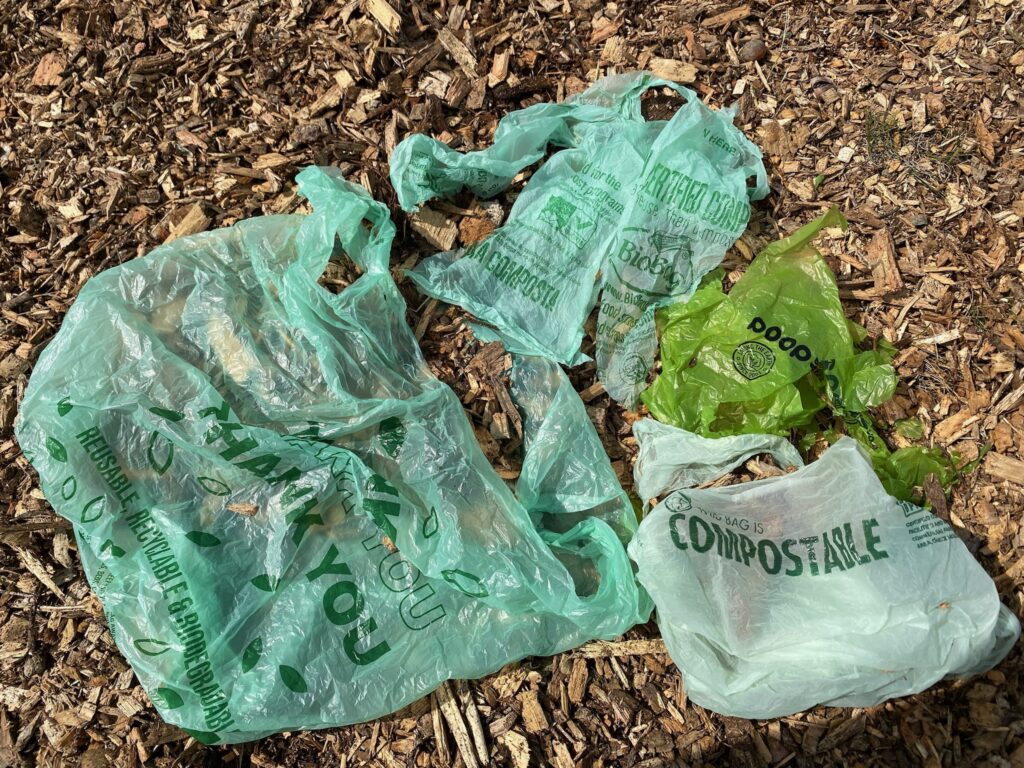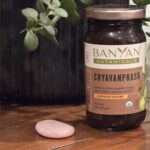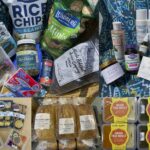The terms “biodegradable” and “compostable” are often used interchangeably, but there are some key differences worth noting. While everything that is compostable is technically biodegradable, not everything that is biodegradable is compostable. The time-frame and conditions that are required to decompose a compostable product may differ markedly from biodegradable products. Consequently, the term biodegradable can be misleading when used in marketing and, therefore, problematic. In fact, in the United States, it is outright illegal to use the term “biodegradable” in sales and marketing language when describing single-use products, including those certified and marketed as compostable. Biodegradation describes the process of microorganisms consuming organic carbon in materials – which means it technically describes a certified compostable product, too – but the reason the term is not acceptable as a marketing claim is because it lacks specificity in regards to the timeframe and environment in which the biodegrading process can be carried out. Additionally, the term is often used in fraudulent advertising to describe “look-alike” non-compostable products to intentionally make them appear similar to certified compostable products. Unfortunately, these products abound on the market and are the leading cause of contamination in commercial composting facilities. It goes without saying that most of the brands who are self-declared to be compliant (but have not been third-party certified) have not met the scientific standards set in place to ensure the safety of the environment. Compostable products and packaging were developed to divert food scraps and organic materials from landfills. Unfortunately, the threat of contamination from “look-alike” non-compostable packaging has led many commercial composters to discontinue accepting even certified compostable products. In order for compostable products and packaging to perform their intended function, they should be readily and easily identifiable by consumers, composters, and others so they can be differentiated from their non-compostable counterparts.
The Biodegradable Products Institute – or BPI – is based in New York City and has been the leading third-party certifier of compostable products in North America for the past 20 years. They are a science-driven organization and their production standards guide manufacturers in designing their products, understanding ingredients, and making compostability claims that consumers can trust, thereby ensuring that these certified items will break down safely into soil during the commercial composting process and not negatively impact compost quality. In an effort to combat an abundance of fraudulent products on the market, BPI is encouraging the prominent and consistent use of the term “compostable” (as opposed to “biodegradable”) on products, packaging and marketing materials to help consumers and others begin to easily identify and understand the difference between legitimate compostable products and their non-compostable counterparts. This is a critical first step in the effort to stop such widespread contamination of commercial composting facilities and the environment with non-compostable goods. The BPI mark ensures that a product is fully compostable and free from organic fluorinated chemicals such as per- and polyfluorinated substances (PFAS).
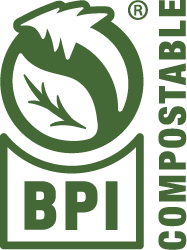
Like biodegradation, composting is a natural process that transforms organic material into soil amendments. The microorganisms responsible for composting are the “good guy” bacteria in soil and require oxygen, moisture, and food in order to grow and multiply. When these factors are maintained at ideal levels – such as in a tended compost pile – the decomposition process is greatly accelerated. Raw, organic products such as leaves, manures, food scraps, wet or soiled papers, and certified compostable products feed the activity of the microbes and help them transform raw materials into stable soil conditioner. Quality finished compost enriches soil by helping to retain moisture, suppressing plant diseases and pests and reducing the need for chemical fertilizers.
In the United States, more food waste ends up in landfills than any other material. Nearly 40% of Maine’s solid waste stream is food waste, which places undue burden on our landfills. Additionally, when organic material starts to break down in a landfill, it releases methane gas. If the landfill is not equipped to capture the methane, it can then escape into the atmosphere as a greenhouse gas. Although it accounts for a smaller percentage of overall emissions, methane is far more potent than carbon dioxide: it traps up to 100 times more heat in the atmosphere than carbon dioxide within a five year period. Clearly, composting on any scale is better than disposing of organic waste materials in landfills. Backyard or home composting happens on a small scale in individuals’ backyard piles or vessel systems. Larger scale commercial/industrial composting facilities collect raw organic material such as food scraps or yard trimmings from businesses such as stadiums or restaurants, in a similar system to trash or recycling services. The raw product is then composted in rows, piles or large vessels that require diligent management of temperature, oxygen, and carbon to nitrogen ratios in order to produce quality finished compost. Depending on the facility, the finished product (composted soil) can then be sold to farms, plant nurseries or individuals. BPI’s certification program is limited to commercial compostability and requires products to be labeled as “commercially compostable only.” That said, a few BPI products have been certified for backyard compostability by European programs, but most products require temperatures that can only be achieved in professionally managed, commercial composting environments. European home composting standards ensure that a material will completely degrade within 90 days in a compost pile that maintains a minimum temp of 113℉. The US does not currently have home composting standards (only commercial standards) but it is generally accepted that the ideal internal temperature for the center of an active compost pile is between 90-140℉. To reach this temperature, a pile must be at least 3’x3’x3’ and have a mixture of green material (grass clippings, food scraps) to supply nitrogen, brown material (leaves, small branches) to add carbon and have adequate moisture levels and be turned on a regular basis to mix oxygen into the pile. Larger scale, commercial composting facilities require a temperature range of between 131-160℉. to achieve optimal microbe activity and facilitate rapid decomposition of raw materials.
Polyethylene and polypropylene began showing up in sandwich bags, garbage bags, plastic films, single-use products (such as cutlery and food packaging), and produce bags in the 1950s and 60s and were considered revolutionary materials. Plastics are designed to last and they do: it takes between 10-20 years for a plastic bag to decompose, up to 450 years for a plastic bottle, and a whopping 600 years for a fishing line to decompose. Waste reduction and not creating waste in the first place is the most effective way to reduce waste. Choosing to buy secondhand, opting for reusable items over disposable, and borrowing or renting as opposed to buying are all ways to reduce waste. In contrast, single-use items are used once before being discarded as waste and should only be used when other options don’t exist or are not feasible. Single-use packaging is thoroughly integrated into our food system and cannot be eliminated overnight, but recycling can be part of the broader solution. When it’s not feasible to reduce or reuse, choosing items that can be recycled or composted can help keep materials out of landfills. Recyclable or compostable single-use products are becoming more popular and could be considered a valuable bridge to a zero waste future. Notwithstanding, far from all single-use items are recyclable or compostable so when recycling or composting, it’s crucial to include only items accepted in that program. “Wish-cycling,” or putting an item in a recycling or compost bin hoping it will get recycled or composted, does more harm than good by creating contamination. One of the biggest contaminants in residential and commercial composting facilities are non-compostable packaging and this is one reason why the U.S. sends more food scraps to landfills than any other material. Replacing the non-compostable packaging with certified compostable items creates a system in which composters accepting food scraps and packaging can process into valuable finished compost, keeping both the food waste and packaging out of landfills.
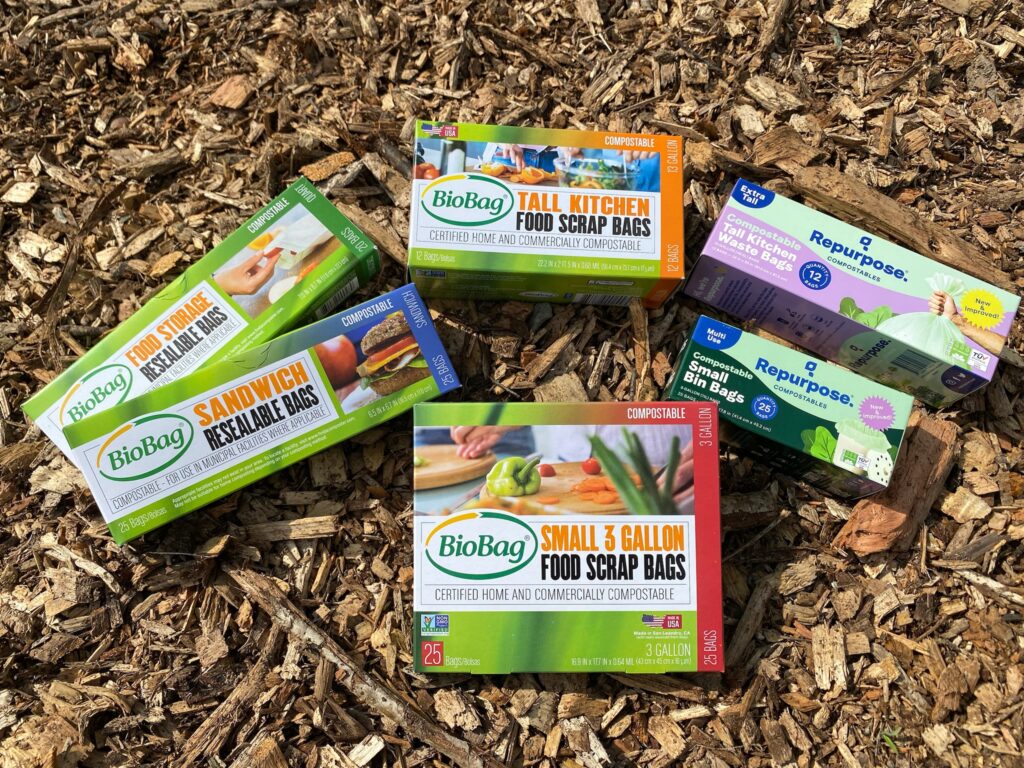
The Blue Hill Co-op is eager to showcase our collection of certified compostable kitchen and household products, such as garbage bags, resealable sandwich bags, food scrap bags, food storage bags, clear cups, parchment paper, coffee filters, baking cups, and cheesecloth. Biobag is one particularly exciting brand that you’ll find on our shelves. BPI certified, Biobag products are made from starches (sourced from renewable crops) and are perfect for at-home composting, as the bags need nothing more than the microbes in an active compost pile to decompose. BioBag has offices in 20 countries and production facilities in Europe and the US and is the world’s largest brand of certified compostable bags and film for the collection of organic waste for the purpose of composting (kitchen scraps, yard waste, etc). Repurpose, Inc. is another BPI certified brand that we are pleased to showcase in our collection of environmentally-friendly household supplies. Repurpose is a “Mom-founded business with a mission to make the Earth a better place” and uses plant-based, non-toxic alternatives for single-use products that make eco-living easy. World Centric is also BPI certified and keeps our shelves stocked with compostable flatware, plates, hot cups, and paper straws. Many of our compostable products can be composted in backyard piles, but always remember to check for the distinction between “commercially- or home-compostable” on the certification label on your product before tossing it into your pile!
If you don’t have a compost pile (or like me, live within the territory of a massive and gluttonous black bear who makes it tricky to keep one safely), consider signing up for a plan with Chickadee Compost. Chickadee Compost is a local business based in Surry, founded by Kate Tompkins. Serving the Blue Hill Peninsula and Ellsworth – from Castine to Surry/Ellsworth and down to Stonington – Chickadee Compost has a number of food scrap drop-off points around the peninsula (including one on the side of Blue Hill Co-op building itself) where you can leave your household food scraps and grab a clean bucket to fill back up in exchange. Chickadee takes care of the rest! There is a finished compost sale in the fall and spring/summer and compost can also be picked up at their composting site on certain dates, and is also available for delivery. While Kate can technically accept BPI/CMA/TUV certified bags, bioplastics are a bit trickier to work with and could possibly interfere with certain organic certifications. She prefers to encourage the use of good old-fashioned BPI certified paper bags to contain food scraps, if necessary, which are more beneficial to her compost piles as a source of carbon and less confusing for everyone.
If you live further afield or split your time between the Blue Hill Peninsula and elsewhere, be sure to check out the BPI and BioCycle Magazine’s collaboratively formed directory of composting facilities throughout North America. This directory is aimed at helping consumers “Find a composter.” Additionally, UMaine also has a List of Composting Service Providers in Maine, which can be accessed here. You can also use this directory to find out where to donate or buy organic compost in the state.
Sources cited:


